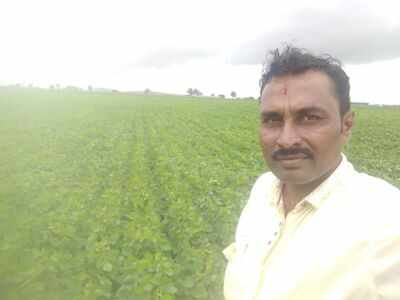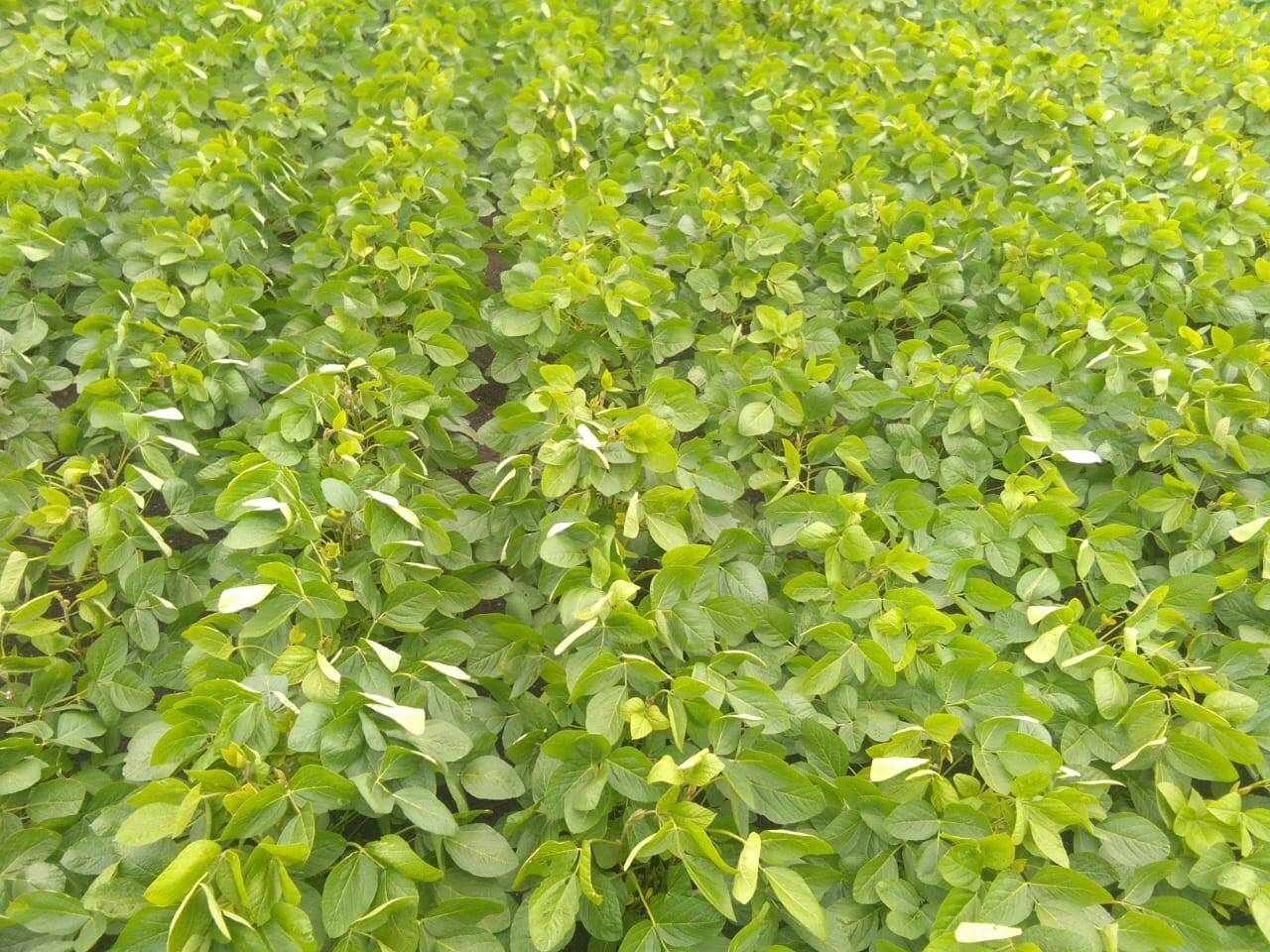- News
- City News
- hubballi News
- Karnataka: Farmer switched to organic farming, reaped a bumper soybean harvest
Karnataka: Farmer switched to organic farming, reaped a bumper soybean harvest

Kallanagouda Shettinagoudar Patil is awaiting the fourth harvet.
HUBBALLI: Normally, farmers grow soybean using chemical fertilisers and pesticides, and get a yield of 10 quintals per acre.
However, a BCom graduate from Unkal here has grown soybean organically and getting a yield of 14.5 quintals per acre, which is said to be a record in the region.

Kallanagouda Shettinagoudar Patil, 41, is awaiting the fourth harvest. Patil told TOI that he has harvested 196 quintal from 14acre land.
"I did not use any chemical fertiliser or pesticide, but grew the crop under the guidance of Ravaji Patel, a businessman-turned-organic farmer from Kadlikoppa village in Hubballi taluk. I gave the first spray of buttermilk and cow urine that was stored for over three months. Just 0.25 litre of each liquid is sufficient for 16 litres of water. For the second spray, an insect repellent, we used mixture of cow urine, neem leaves, parthenium, ace, castor and chilli and garlic powder. Later, the solution used as the first spray was repeated," he explained.
"As my first effort in 2018-19 gave me success, I repeated the same in 2019-20 and 2020-21. The price of soybean, which was Rs 4,200 per quintal, went up to Rs 7,200 last year. I earned Rs 66,000 per acre after deducting input costs in 2018-19. Per-acre net profit was Rs 96,000 last year. It was a kharif crop, and I got the yiend in four months. Though we grow bengal gram in rabi season, it is an average crop. We prefer soybean as it is less prone to damage," he said.
Rajashekhar A Anagoudar, assistant director of the agriculture department, said Patil has been an innovative and progressive farmer.
"He has been conferred Krushi Bhagya and taluk-level agri award and also adjusted Best Farmer at Kisan Mela-2018-19 organised by our department and University of Agricultural Sciences," he added.
However, a BCom graduate from Unkal here has grown soybean organically and getting a yield of 14.5 quintals per acre, which is said to be a record in the region.

Kallanagouda Shettinagoudar Patil, 41, is awaiting the fourth harvest. Patil told TOI that he has harvested 196 quintal from 14acre land.
"I did not use any chemical fertiliser or pesticide, but grew the crop under the guidance of Ravaji Patel, a businessman-turned-organic farmer from Kadlikoppa village in Hubballi taluk. I gave the first spray of buttermilk and cow urine that was stored for over three months. Just 0.25 litre of each liquid is sufficient for 16 litres of water. For the second spray, an insect repellent, we used mixture of cow urine, neem leaves, parthenium, ace, castor and chilli and garlic powder. Later, the solution used as the first spray was repeated," he explained.
"As my first effort in 2018-19 gave me success, I repeated the same in 2019-20 and 2020-21. The price of soybean, which was Rs 4,200 per quintal, went up to Rs 7,200 last year. I earned Rs 66,000 per acre after deducting input costs in 2018-19. Per-acre net profit was Rs 96,000 last year. It was a kharif crop, and I got the yiend in four months. Though we grow bengal gram in rabi season, it is an average crop. We prefer soybean as it is less prone to damage," he said.
Rajashekhar A Anagoudar, assistant director of the agriculture department, said Patil has been an innovative and progressive farmer.
"He has been conferred Krushi Bhagya and taluk-level agri award and also adjusted Best Farmer at Kisan Mela-2018-19 organised by our department and University of Agricultural Sciences," he added.
FacebookTwitterLinkedinEMail
Start a Conversation
end of article
Quick Links
Delhi Air PollutionDelhi TemperatureChennai WeatherBangalore TemperatureCovid vaccination centres in DelhiCoronavirus in DelhiRTPCR test in GurgaonHyderabad RainPollution level in BangaloreDelhi SmogDelhi TemperatureNoida AQIGurgaon AQI todayFire in MumbaiMumbai RainsCovid 19 RT PCR Test in NoidaDelhi AQI todaySrinagar encounter
